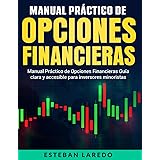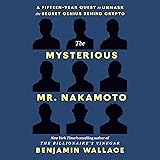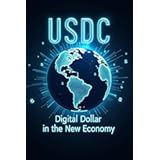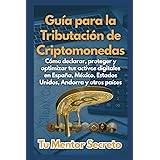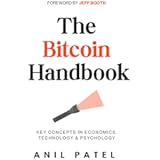The video above delves into the burgeoning financial activities of Donald Trump and his family, particularly highlighting their significant involvement in new **crypto ventures**. It raises critical questions about the blurring lines between personal business interests and presidential office, an issue that continues to command considerable public and legal scrutiny.
A central issue presented is how a sitting or former president’s business dealings might create conflicts of interest, potentially influencing policy or granting undue access. This phenomenon has sparked widespread debate, especially concerning the integrity of the highest office in the land.
The Evolving Stance on Cryptocurrency: From Skeptic to Advocate
Initially, Donald Trump expressed considerable skepticism about Bitcoin, famously stating it “just seems like a scam” and lamenting its potential to compete with the U.S. dollar. This position reflected a traditional view of currency and wealth, rooted in tangible assets such as real estate, resorts, and casinos, which have historically formed the foundation of the Trump family’s fortune.
However, a significant shift in perspective was observed following an extraordinary meeting at Trump Tower in May 2024. This gathering marked the culmination of a months-long campaign orchestrated by leading crypto advocates, including David Bailey. The objective was clear: to convince the presidential candidate of Bitcoin’s potential and the political advantages of embracing the cryptocurrency community.
The efforts of the crypto lobby were remarkably successful. It was proposed to Trump that supporting crypto could yield substantial political benefits, including a new base of voters and significant fundraising opportunities. For an entrepreneurial figure, this political calculus evidently proved compelling, transforming his stance into one of strong support for a crypto-friendly administration.
This conversion was publicly declared in Nashville, Tennessee, at a 2024 Bitcoin conference. Before thousands of devotees, Donald Trump pledged to end the “anti-crypto crusade” of the Biden-Harris administration, promising a favorable regulatory environment for the industry should he return to office.
World Liberty Financial: A Deep Dive into Trump’s Crypto Ventures
Following this pivot, Donald Trump and his sons launched their own crypto venture, World Liberty Financial, just seven weeks before the presidential election. This platform was positioned as an embrace of the future, contrasting with “slow and outdated big banks.”
Donald Trump himself served as the public face of the publicity campaign and was listed as its “chief crypto advocate” on the so-called “gold paper” (akin to a white paper in the crypto world). Through this platform, individuals were able to invest by purchasing a specific token.
It was revealed that a substantial 75% of the profit generated from each token sale was directed to the Trump family. By mid-March of this year, World Liberty Financial reportedly sold $550 million USD worth of its token. This enterprise is estimated to have delivered approximately $390 million in revenue to the presidential family, with individual transactions sometimes yielding close to $50 million.
Allegations of Profiting and Access
The financial gains from these **crypto ventures** have intensified accusations of Donald Trump potentially profiting from the presidency. Critics argue that such business activities create an explicit link between financial contributions and access to political power. One businessman noted, “It was explicit, if you give me and my family more money, you can access the most powerful person in the world.”
Concerns have been raised regarding whether these personal interests could compromise a leader’s loyalty to the public interest. The White House, conversely, has insisted that the President’s personal assets are managed by his children through a trust and do not influence his presidential decision-making, asserting that all applicable conflict of interest laws are being observed.
Constitutional and Ethical Implications
The intertwining of business and politics, particularly when involving new financial instruments like cryptocurrency, has brought the focus to the US Constitution. Specifically, the Emoluments Clause, designed to prevent federal officeholders from receiving gifts or payments from foreign states or domestic sources without Congressional consent, becomes highly relevant.
Lawyers like Norman Eisen have vocally criticized these activities as an “outrageous conflict of interest” and an “abuse of public power for personal gain.” They contend that transactions such as the reported $2 billion investment in the crypto industry, where Trump maintains a stake, alongside the “auctioning off access” to those who purchase his meme coin, collectively demonstrate a pattern of using public office for personal enrichment.
Such scenarios lead to difficult questions about transparency and accountability in governance. The public’s confidence in the impartiality of its leaders can be eroded if there is a perception that policy decisions might be influenced by personal financial incentives rather than the national welfare.
The Vision of a Bitcoin Strategic Reserve
Amidst these developments, the concept of a “Bitcoin Strategic Reserve” gained traction, particularly within crypto circles. At a Bitcoin Museum in Nashville, an executive order signed by President Trump was showcased, signaling the potential adoption of Bitcoin as a reserve asset for the US government. This initiative could eventually lead to a national stockpile of the digital currency, akin to the existing gold reserve.
This move is presented as a major step toward moving Bitcoin into the mainstream, granting it legitimacy through governmental endorsement. A presidential signature on such an order would represent a significant boost for the cryptocurrency, reflecting a monumental shift in official policy towards digital assets.
The implications of a US government holding Bitcoin as a reserve asset are far-reaching. It would not only reshape global financial markets but also solidify the position of cryptocurrencies within national economic strategies, potentially setting a precedent for other nations.
Broader Challenges and Public Trust
The complexities surrounding **Trump’s crypto ventures** and other business interests underscore the ongoing challenges of managing personal wealth for public officials. While blind trusts are often used to mitigate conflicts of interest, their effectiveness can be limited, especially for public figures whose assets are widely known or whose family members remain actively involved in business operations.
The debate extends to fundamental questions about the nature of public service. When a leader’s financial interests appear to intersect with their official duties, the ethical framework of democracy itself is tested. The public has a right to expect that decisions are made solely for the benefit of the nation, free from the taint of personal gain.
These developments highlight the critical importance of robust legal and ethical safeguards for all public officials. Ensuring transparency and accountability in financial dealings remains paramount for maintaining trust in government institutions and upholding the integrity of the presidency, especially concerning new financial frontiers like cryptocurrency.


